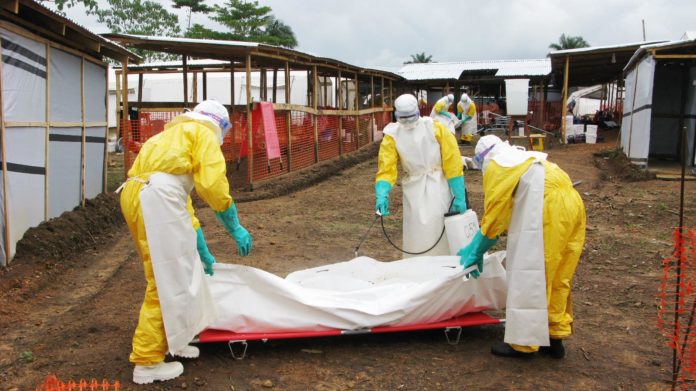
The number of people killed by the Ebola virus is approaching 8,500, the World Health Organization (WHO) said on Thursday, even as the three countries at the center of the outbreak continue to make great strides toward containing it.
According to the latest WHO data, at least 21,329 people have been infected with Ebola and 8,444 have died from it since the outbreak was confirmed last March.
Sierra Leone has reported the most cases — 10,150 as of Jan. 12 — followed by Liberia with 8,362 and Guinea with 2,817. The death toll is highest in Liberia, where 3,556 people have died from Ebola, followed by Sierra Leone (3,067 deaths) and Guinea (1,821 deaths). However, the WHO has warned that these figures underestimate the actual numbers of cases and deaths.
Isolated cases and clusters have also been confirmed in Mali, Nigeria, Senegal, Spain, Britain and the United States.
Last week, the WHO conceded that all three countries fell short of the Jan. 1 target of having 100 percent of Ebola cases isolated in treatment centers and conducting 100 percent of burials in a safe manner.
Ebola virus disease, previously known as Ebola hemorrhagic fever, causes severe, often fatal illness in humans, with a case fatality rate of 60-80 percent. The virus is passed on to people from wild animals and can be transmitted from humans to humans through direct contact with contaminated bodily fluids.
The first outbreaks of Ebola occurred in remote Central African villages, near tropical rainforests. However, major urban and rural areas have been involved in the ongoing West African outbreak, contributing to its unprecedented spread.
Scientists believe they have traced the source of the current outbreak to a colony of bats in a small village called Meliandou, located in Guinea near its border with Sierra Leone and Liberia. The region’s unfamiliarity with Ebola, combined with its highly mobile populations, porous borders and exiguous public health infrastructure, set the stage for the worst outbreak in recorded history.
To date, there are no licensed treatments for the virus but a number of blood, immunological and drug therapies are under development. There are no licensed Ebola vaccines yet but at least two candidates have passed initial safety tests and are ready to be deployed in frontline trials in West Africa., while others are still in clinical development.
